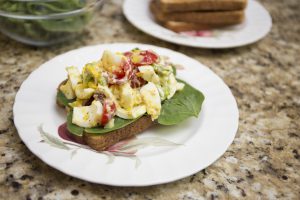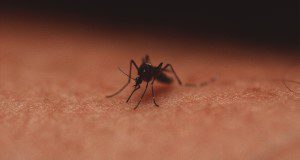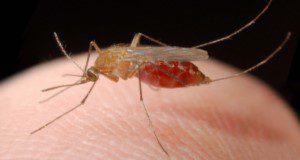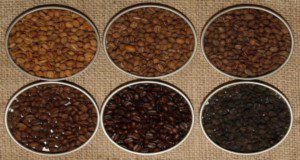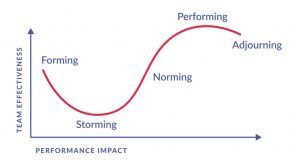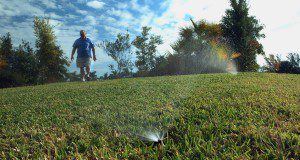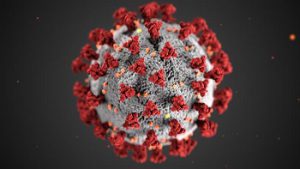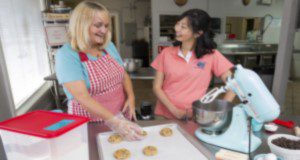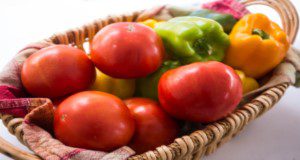Nutrition risk screening is a first step to quickly identify individuals who might be malnourished or at risk of malnutrition. A malnutrition screening tool should be easy to use, quick to administer, and valid—able to correctly identify those at risk of malnutrition. The Comprehensive Older Adult Screening Tool (COAST) is a valid and practical tool to determine if community-dwelling older adults, specifically older adults of lower socioeconomic status, are at risk for malnutrition. This new 6-page publication of the UF/IFAS Food Science and Human Nutrition Department, written by Karima Alabasi, Nancy J. Gal, and Wendy J. Dahl, provides an introduction to COAST as well as the 5-question screening tool.
https://edis.ifas.ufl.edu/fs393
Author: Paul Roberts
COAST-ES: Herramienta integral de tamizaje para adultos mayores
El tamizaje (cribado) del riesgo nutricional es un primer paso para identificar rápidamente a las personas que pueden estar desnutridas o en riesgo de desnutrición. Una herramienta de tamizaje de detección de desnutrición debe ser fácil de usar, rápida de administrar y válida para poder identificar correctamente a las personas en riesgo de desnutrición. La Herramienta Integral de Tamizaje de Adultos Mayores (COAST, por sus siglas en inglés) es una herramienta váida y práctica para determinar si los adultos mayores que viven en la comunidad están en riesgo de desnutrición.
This is the Spanish translation of FSHN20-37/FS393, COAST: A Comprehensive Older-Adult Screening Tool. Written by Karima Alabasi, Nancy J. Gal, and Wendy J. Dahl, translated by Daniela Rivero Mendoza, and published by the UF/IFAS Food Science and Human Nutrition Department.
https://edis.ifas.ufl.edu/fs396
Understanding Public Perceptions of Mosquito-Related Information Sources and Adapting Research Findings to the Needs of Industry Professionals
The Prevent & Protect publication series focuses on the creation of different material formats to resonate with various audiences and ways to maximize their efficacy in communicating risk to the public about mosquito control. The overview of the Prevent & Protect project, developed by the UF/IFAS Center for Public Issues Education in Agriculture and Natural Resources (PIE Center), can be found in EDIS publication AEC694/WC357, Public Perceptions of Mosquitoes and Mosquito Control. This new 3-page document describes the importance of understanding and adapting to public perceptions of information sources and how scientists can adapt their research findings based upon the needs of professionals in the field to create usable outreach materials. Written by Shelli Rampold, Ricky Telg, Alena Poulin, Sandra Anderson, Angela B. Lindsey, Ashley McLeod-Morin, and Phillip Stokes, and published by the UF/IFAS Department of Agricultural Education and Communication.
https://edis.ifas.ufl.edu/wc358
Public Perceptions of Mosquitoes and Mosquito Control
The Prevent & Protect publication series focuses on the creation of different material formats to resonate with various audiences and ways to maximize efficacy in communicating about mosquito-related risks and mosquito control topics to the public. This new 3-page publication of the UF/IFAS Department of Agricultural Education and Communication provides a background of public opinion on various aspects of mosquito control covered in the Prevent & Protect campaign. Written by Shelli Rampold, Ricky Telg, Alena Poulin, Sandra Anderson, Angela B. Lindsey, Ashley McLeod-Morin, and Phillip Stokes.
https://edis.ifas.ufl.edu/wc357
Small-to-Medium-Scale Sensory Evaluation of Horticultural Crops: Measuring Responses
When measuring the responses of panelists, the main principle behind sensory evaluation, a variety of sensory tests can be used. This new 4-page publication is the second in a series designed to assist producers in the small-to-medium-sized sensory evaluation of their horticultural crops, outlining the types of data and sensory measurement techniques utilized in sensory evaluation. Written by Sean Michael Campbell and Charles A. Sims, and published by the UF/IFAS Environmental Horticulture Department.
https://edis.ifas.ufl.edu/ep582
Icebreakers for Adults
Building rapport is key when creating a team culture. As groups change over time, it is imperative to continually reintroduce and reacclimate new team members to long-standing teammates. Leaders of groups that undergo constant change, like those whose jobs involve volunteers, may find it challenging to find innovative ways to bring people together. Icebreakers are quick, low- or no-cost activities that allow individuals to get to know the people around them and serve as a means to build trust and openness in a low-stakes environment. This new 3-page publication of the UF/IFAS Department of Agricultural Education and Communication outlines strategies to use when building a team culture and gives examples of simple activities to build cultures within teams or groups. Written by Megan Stein and Taylor Nash.
https://edis.ifas.ufl.edu/wc356
An Overview of Key Soil Nitrogen Cycling Transformations
Although nitrogen (N) is one of the most abundant elements in the biosphere, it is generally at levels that are limiting for optimum plant growth and crop production in Florida soils. To maintain adequate N levels in Florida soils without having detrimental environmental side effects, one must understand and manage N cycling transformations and processes. This new 5-page article, published by the UF/IFAS Department of Soil and Water Sciences, provides an overview of the N cycle by describing key N transformations that result in soils gaining or losing N. The biotic and abiotic processes that govern these transformations are described, as well as practical examples of these transformations in Florida soils. Written by Clayton J. Nevins, Sarah L. Strauss, and Patrick Inglett.
https://edis.ifas.ufl.edu/ss684
COVID-19 and Food Safety FAQ: Is Coronavirus a Concern at Grocery Stores? (Mandarin Chinese)
This is the Mandarin Chinese translation of FSHN20-20/FS348, COVID-19 and Food Safety FAQ: Is Coronavirus a Concern at Grocery Stores? It provides answers to a few frequently asked questions regarding COVID-19 and grocery stores. Written by Natalie Seymour, Mary Yavelak, Candice Christian, and Ben Chapman, and published by the UF/IFAS Food Science and Human Nutrition Department.
https://edis.ifas.ufl.edu/fs391
Is Coronavirus a Concern on Fresh Produce? (Mandarin Chinese)
This is the Mandarin Chinese translation of FSHN20-22/FS350, Is Coronavirus a Concern on Fresh Produce? It provides guidance relevant to COVID-19 regarding handling and consumption of fresh produce. Written by Natalie Seymour, Mary Yavelak, Candice Christian, and Ben Chapman, and published by the UF/IFAS Food Science and Human Nutrition Department.
https://edis.ifas.ufl.edu/fs389
COVID-19 Preventative Measures: Do-It-Yourself Cloth Face Coverings (Mandarin Chinese)
This is the Mandarin Chinese translation of FSHN20-31/FS373, COVID-19 Preventative Measures: Do-It-Yourself Cloth Face Coverings. It provides guidance for making and caring for facemasks. Written by Natalie Seymour, Mary Yavelak, Candice Christian, and Ben Chapman, and published by the UF/IFAS Food Science and Human Nutrition Department.
https://edis.ifas.ufl.edu/fs390
COVID-19 and Food Safety FAQ: Is Coronavirus a Food Safety Issue? (Mandarin Chinese)
This is the Mandarin Chinese translation of FSHN20-18/FS341, COVID-19 and Food Safety FAQ: Is Coronavirus a Food Safety Issue? It provides guidance related to COVID-19 regarding food production, handling, and packaging. Written by Natalie Seymour, Mary Yavelak, Candice Christian, and Ben Chapman, and published by the UF/IFAS Food Science and Human Nutrition Department.
https://edis.ifas.ufl.edu/fs387
COVID-19 and Food Safety FAQ: Is Coronavirus a Concern with Takeout? (Mandarin Chinese)
This is the Mandarin Chinese translation of FSHN20-22/FS349, COVID-19 and Food Safety FAQ: Is Coronavirus a Concern with Takeout? It provides answers to frequently asked questions regarding COVID-19 and takeout food. Written by Natalie Seymour, Mary Yavelak, Candice Christian, and Ben Chapman, and published by the UF/IFAS Food Science and Human Nutrition Department.
https://edis.ifas.ufl.edu/fs388
COVID-19 Preventative Measures: What to Do If You Are Sick (Mandarin Chinese)
This is the Mandarin Chinese translation of FSHN20-17/FS340, COVID-19 Preventative Measures: What to Do If You Are Sick. It provides guidance for seeking medical attention, staying away from others, and avoiding infecting others. Written by Natalie Seymour, Mary Yavelak, Candice Christian, and Ben Chapman, and published by the UF/IFAS Food Science and Human Nutrition Department.
https://edis.ifas.ufl.edu/fs386
Finding and Using a Co-Packer
A contract packager, commonly called a co-packer, is a manufacturer that will produce, package, and/or label a product for clients. This new 7-page factsheet provides a brief overview on the definition of co-packers, advantages and disadvantages of using a co-packer, and the list of things you need to consider when you hire and work with a co-packer. It also includes a noncomprehensive list of co-packers in Florida and Georgia. This factsheet is one in the Food Entrepreneurship in Florida series, which serves as a useful guide to help run a successful food-related business. Written by Alison O’Donoughue, Wendi Jennings, and Soohyoun Ahn, and published by the UF/IFAS Food Science and Human Nutrition Department.
https://edis.ifas.ufl.edu/fs380
Jere COVID-19: Pwodwi jaden ak izin anbalaj yo
Pandan ke pa gen prèv ki asosye viris COVID-19 la a yon pwoblèm sekirite alimantè, li se yon pwoblèm sante pou travayè yo paske li pwopaje l pa kontak moun ak moun oswa lè w manyen yon sifas ki kontamine. Manje pa parèt tankou yon kòz ki favorize transmisyon COVID-19 la, men menm pratik yo itilize pou evite maladi ou ka pran nan manje, menm pratik sa yo ta dwe itilize pou diminye chans kontaminasyon COVID-19 la nan nan pwodwi alimentè ki fre yo epi risk pou COVID-19 ta simaye l pami travayè agrikòl yo ak sa kap travay nan izin anbalaj yo.
This new 2-page publication of the UF/IFAS Food Science and Human Nutrition Department is the Haitian Creole translation of FSHN20-25, Handling COVID-19: Produce Farms and Packinghouses. Written by Laurel Dunn (UGA) and translated by Emmanuel Duvalsaint.
https://edis.ifas.ufl.edu/fs385
Etalaj fwi, legim ak lòt pwodwi agrikòl nan peryòd COVID-19: kisa machann yo ka fè pou pwoteje tèt yo ok kliyan yo
Agrikiltè ak kliyan yo pa dwe ale kote yo etale fwi, legim ak lòt pwodwi agrikòl pou vann si yo gen sentòm COVID-19 la, oswa si yo ta antre an kontak ak yon moun ki malad. Nenpòt moun ki ta gen sentòm yo ap kite espas sa a.
This new 2-page publication of the UF/IFAS Food Science and Human Nutrition Department is the Haitian Creole translation of FSHN20-28, COVID-19 and Farm Stands: Steps for Farm Stand Operators. Written by Natalie Seymour, Mary Yavelak, Candice Christian, and Ben Chapman (all of NCSU) and translated by Emmanuel Duvalsaint.
https://edis.ifas.ufl.edu/fs384
Antibiotics in Crop Production
This new 5-page article presents an overview of the use of antibiotics in agriculture. Several of the most severe bacterial diseases of tree fruit and other crops are discussed and their integrated management, which includes the use of antibiotics, is described. Antibiotic use for plant disease protection is compared with the use of antibiotics in livestock production, and their future and limitations in plant production are discussed. Written by Leigh Archer, Ute Albrecht, and Pamela Roberts, and published by the UF/IFAS Horticultural Sciences Department.
https://edis.ifas.ufl.edu/hs1366
Sekirite alimante ak COVID-19 : Kesyon yo poze souvan : Eske kowona viris se yon pwoblem nan pwodiksyon fwi ak legim
Nan moman sa a, CDC, FDA ak USDA pa rapòte okenn ka maladi ki ta sigjere kowona viris la ka transmèt sòti nan manje oswa nan anbalaj pwodwi alimantè. Rechèch ki fèt sou viris ki menm jan an tankou SARS ak grip montre risk transmisyon viris la pou l ta sòti nan yon manje fèb anpil. Pandan ke pa gen anpil enfòmasyon sou ki kantite tan viris la ka fè sou yon sifas, risk pou transmisyon an ta sòti nan yon manje fèb epi li pa ta dwe enkyete nou.
This new 2-page publication of the UF/IFAS Food Science and Human Nutrition Department is the Haitian Creole translation of FSHN20-23, COVID-19 and Food Safety FAQ: Is Coronavirus an Issue in Produce Production?. Written by Natalie Seymour, Mary Yavelak, Candice Christian, and Ben Chapman (all of NCSU) and translated by Emmanuel Duvalsaint.
https://edis.ifas.ufl.edu/fs383
COVID-19 mezi prevantif: mas an twal pou anplwaye ki nan sekte alimante
Daprè CDC, yon metòd efikas pou kwape pwopagasyon maladi enfektye sa a se lè w kouvri visaj ou ak yon twal oswa w mete yon mas an twal. Yo itilize mas an twal yo pou kouvri bouch ak nen yon moun ki enfekte oswa ki ta ka enfekte si l pran viris la lè yon moun ap touse, estènen oswa nan yon konvèsasyon nòmal. Mas an twal yo bay bon jan pwoteksyon si yo 1) bon kalite 2) mete yo byen 3) sèvi ak yo byen. Lè w mete yon mas an twal, li ka diminye ris men li pa bay yon pwoteksyon total kapital. Nou dwe swiv lòt metòd pou diminye ris yo tankou: pa rete pre yonn ak lòt, lave men nou, itilize sanitzè/dezenfektan pou men epi evite manyen je w, nen w ak bouch ou.
This new 2-page publication of the UF/IFAS Food Science and Human Nutrition Department is the Haitian Creole translation of FSHN20-33, COVID-19 Preventative Measures: Cloth Face Coverings for Food Employees. Written by Natalie Seymour, Mary Yavelak, Candice Christian, and Ben Chapman (all of NCSU) and translated by Emmanuel Duvalsaint.
https://edis.ifas.ufl.edu/fs382
Jere COVID-19 : Pi bon Pratik pou Agribiznis
COVID-19 simaye l sitou pa kontak dirèk moun ak moun, oswa si pandan yon moun ap touse oubyen pale postiyon krache a ki deja gen viris la kontamine yon sifas epi yon moun ki ansante manyen kote sa a. Pandan ke pifò magazen manje ak ekipman kontinye fonksyone pandan maladi a ap simaye ak lòt ijans, kèk mezi prevantif ka pran pou pwoteje sante anplwaye yo ak kliyan yo.
This new 2-page publication of the UF/IFAS Food Science and Human Nutrition Department is the Haitian Creole translation of FSHN20-27, Handling COVID-19: Best Practices for Agribusiness. Written by Tom Maddox and Laurel Dunn (both of the University of Georgia) and translated by Emmanuel Duvalsaint.
https://edis.ifas.ufl.edu/fs381
